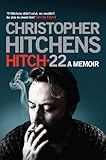 Verdi With a Vengeance: An Energetic Guide to the Life and Complete Works of the King of Opera
Verdi With a Vengeance: An Energetic Guide to the Life and Complete Works of the King of Opera by
William Berger
My rating:
3 of 5 stars
An entertaining book - both light-hearted and serious by turns, this book shows a real love for the "King of Opera." I have to admit that I read this whole thing just to get to the material on one of my favorite operas,
Falstaff, which
would be his last one. The historical information on Verdi himself was an easy read, but the in-depth review of each and every opera dragged out, especially over operas I was not familiar with. Although I
am familiar with quite a few Verdi works and can picture them in my mind's eye or ear when reading about them, there are still plenty I've never heard, much less seen. This, therefore, is not a book for sitting and reading through the whole thing as I tried to do. I recommend reading Verdi's background and then dipping into the operas as needed. This would require purchasing the book to have on hand.
Berger also recommends some recordings and has some pointed (but amusing) remarks to make about how some opera singers perform or, perhaps, how fast some conductors move it along, but I'm afraid that regardless of what anyone else says, the first version of any opera you see or listen to will almost always be your gold standard and rarely will you find any to surpass it. [And I will grant you that Maria Callas was an outstanding actress and a great singer - but she still sounds like she's singing with a mouthful of fruit which, to me, means she is singing for herself and not us. She did
not sound like that on her earliest recordings, so I can only imagine that she developed that muffled, fruity sound later when she was an undisputed diva and no one had the nerve to tell her what it sounded like because she was beautiful and talented. Then, of course, she also proceeds to do what she likes with her roles. Thus endeth the rant.:]
I love operas the way I love cats: with a passion that allows me also to laugh at them. This, I am sure, has caused some not slight consternation from Baltimore, MD (Where I was the only one laughing at Bardolpho - I suppose everyone else was reading the damn supertitles) to Newberry, SC (where my husband and I almost hurt ourselves when don José polished his rifle and then his sword to Carmen's
Habanera). Books like this key into my need to study and laugh. Perhaps I should just buy the damn thing.
View all my reviews >>
 They Were Strong and Good by Robert Lawson
They Were Strong and Good by Robert Lawson







